Cuts to National Endowment for the Humanities Hit Rural Montana, Other States Hard

When Jill Baker’s email pinged late on a Wednesday night in early April, she had no idea that her role as the director for Humanities Montana was about to fundamentally change.
“I received the letter from DOGE [Department of Government Efficiency] through the acting chair of the National Endowment for the Humanities at 10:25 pm on Wednesday, April 2. The letter was dated April 2, and our grant was terminated April 2, so there wasn’t even an opportunity to close out our grant and to be reimbursed for expenses that had happened prior to April 2,” Baker told the Daily Yonder in an interview.
Humanities Montana is one of 56 regional humanities organizations that bring humanities programs to underresourced communities including in rural areas. In 2024, over 17,000 people attended a Humanities Montana program, with more than half residing in a rural county.
Funding was cut to all 56 regional humanities organizations, as well as the national office in Washington, DC. State humanities across the country are scrambling to continue running their programs. In Alaska, a note on their program’s website states, “Late on the night of April 2, the Alaska Humanities Forum received a letter from DOGE officials informing them that their NEH operating grant approved by Congress had been illegally terminated effective immediately.” Wisconsin Humanities also has an announcement on its website, noting that “the loss of NEH funding will likely result in Wisconsin Humanities closing its doors soon.”
Humanities Montana has brought experts in history, journalism, and poetry to speak to rural Montanans who would otherwise struggle to access such programs. Through their Montana Conversations program, they also bring trained facilitators to lead workshops and conversations that strengthen community resilience.
“Our mission is to bring untold stories that can help bring people together and find the humanity in one another,” Baker said. “In this moment, that’s a real challenge in and of itself. My worry is that without the public humanities, our divides will grow, we’ll have less opportunities to gather together and have simple civic conversations, to learn from one another.”
Humanities Montana has received general operating support grants through the National Endowment for the Humanities (NEH) for over 50 years. The NEH funding provided most of their operating budget; in 2023, the NEH made up 80.9% of their $1,011,229 budget.
The sudden cut in funding meant they had to cancel all scheduled programs for the year immediately. Like with most federal funding, Humanities Montana needed to spend the allocated money and then submit invoices to be reimbursed. The way their funding was cut meant that they will not be compensated for the funds they have already spent, and they won’t be able to allot any more money for programs going forward.
“We need to pivot pretty quickly to private fundraising, and that changes our business model completely. So we’re pausing those programs and making a plan to move forward in a different landscape,” Baker said.
On With the Program
One person who isn’t ready to pause is the current Montana Poet Laureate and award-winning Métis storyteller, Chris La Tray. He is committed to attending all the events he had been scheduled for through Humanities Montana and has since added even more, regardless of the organization’s ability to pay. He has been working to raise the money through private donations.
La Tray, an enrolled member of the Little Shell tribe of Chippewa Indians, wasn’t surprised by the funding cuts, even if he was angry about them.
“The way those grants work, it’s like what they learned writing treaties with Indian tribes; just because you say you’re going to do something doesn’t mean you have to. It’s a pretty cruel kind of bait and switch,” La Tray told the Daily Yonder.
A poet and the author of Becoming Little Shell, a memoir about his journey to embracing his Indigenous heritage, La Tray’s commitment to continuing his program is borne from seeing firsthand how important his work is, especially in rural areas.
“When I started working with Humanities, I said, let’s make the list of all the little places that nobody ever goes to, and let’s make going there a priority,” La Tray said.
Since announcing that he planned to continue his programming regardless of payment, La Tray has been working with schools and community centers to find alternative ways to fund his work, finding private donors who have offered to step in.
For La Tray, the work is just too important to stop. “There’s a little school just on the eastern edge of the Fort Belknap Reservation who asked me to come do the commencement address at their high school graduation, and there’s six graduating seniors,” he said. “They have eighth-grade and kindergarten graduates as part of this. It’s not even 20 kids, and it’s a nine-hour drive away from me. And they started asking, right as Humanities was collapsing, and how am I not going to do that, you know?”
With more than half his work taking place in rural Montana, La Tray and Bake believe these cuts will hit folks in rural areas the hardest.
“For example, one of the places that we have had speakers is Petroleum County, population 500 in the whole county. Humanities Montana speaker, Mary Jane Bradbury, did her program talking about the history of Nancy Russell, and 80 people showed up in a county that has 500 people. I just think that shows the power of the humanities to bring people together, to gather, to share the hunger to learn,” Baker said.
Samantha French, the director of the Blaine County Museum in Chinook, Montana, is worried about losing such a valuable resource for her community.
“It’s so affordable to go through the speakers bureau, it’s a $75 copay. Humanities Montana funded all of the speakers’ other expenses, their mileage, their lodging, and that’s not something that’s feasible to do for a lot of small museums,” French said.
The Blaine County Museum holds its speaker series in the winter as a way to build community during the dark months. French said that it brings people from all walks of life, and they typically have between 15 and 30 attendees on a weekday night, out of a population of 1,200.
That’s where Humanities Montana programs were just invaluable, because they appealed to a really broad breadth of age groups and kinds of people,” French said. Humanities Montana also gave the museum $500 to fund its book club, which brought people to the museum and library with which neither institution had previously interacted with. After the programming was finished, the books were turned into kits that can be borrowed by other libraries in the state.
French recognizes the effects losing this program will have on Chinook and other rural Montanans. “There’s already so little here, and unfortunately, with the nature of these federal cutbacks, it really does impact the people who are the most disadvantaged,” she said.
“Rural people in rural communities are disadvantaged. We really have very few resources. We have very little access to transportation, healthcare, and healthy food. We truly need what was there. So yeah, it makes a big impact.”
The post Cuts to National Endowment for the Humanities Hit Rural Montana, Other States Hard appeared first on The Daily Yonder.
Trump Deportations Have Dairy Farmers on Edge
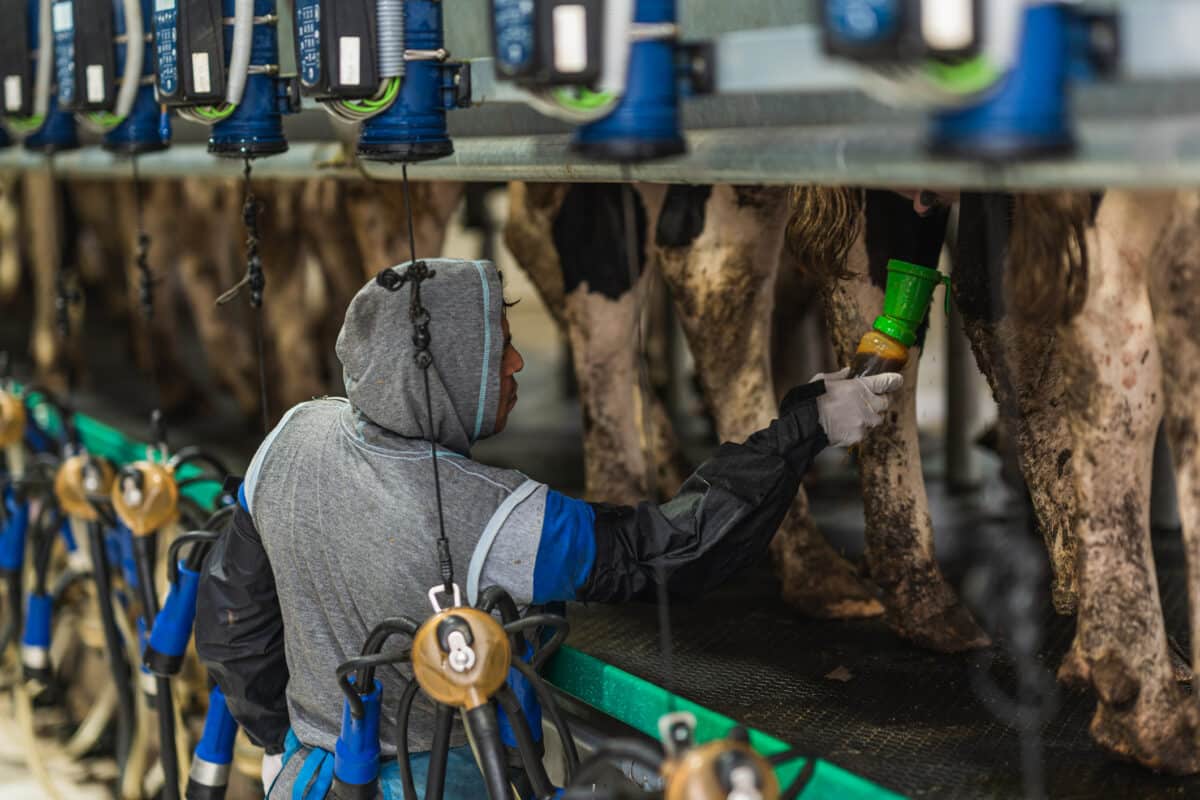
Visit a dairy farm anywhere in the country and odds are decent you’ll overhear conversations in Spanish.
Like other farmers in the United States, dairy farmers rely on immigrant laborers from Mexico or Central America, many of them without authorization to work here. Immigrant labor is vital in getting milk to market, whether it’s moving cows through milking machines, taking care of chores that milking robots still can’t do or trucking milk across the country.
That’s especially the case on larger dairies with hundreds or thousands of cows. According to Farm Action, only 2.5% of dairies (comprising a few hundred dairies with more than 2,500 cows) produce nearly 45% of American raw milk.
“We’re at a point today where, if you go on large dairy farms—and when I say large, I mean anything that’s, let’s say 500 cows and higher—[there’s a] very strong likelihood that most of the milkers are Hispanic, and probably some of the shop or outside crew,” says Richard Stup, director of agricultural workforce development at Cornell University. In the Northeast and Midwest, he estimates immigrants make up about 50-60% of dairy workers, while in the Southwest and West it is close to 80%.
Rick Naerebout, CEO of the Idaho Dairymen’s Association, estimates that about 90% of workers on Idaho dairy farms come from other countries.
That has left many farmers deeply uneasy at the aggressive stance on immigration taken by the Trump administration, which has made immigration enforcement central to its message and policy.
There are signs Trump may be ramping up raids on dairy workers. In late March, ICE reportedly picked up four adults and three children at a dairy farm in Sackets Harbor, New York. The agency said at the time that it had also begun conducting “enhanced targeted operations in parts of New York,” picking up any unauthorized workers they find along the way. On April 21, ICE conducted what Migrant Justice, a Vermont-based advocacy group, called the largest single immigration enforcement action against farmworkers in Vermont in recent history when it detained eight workers at a dairy farm in Berkshire.
Why the issue is so acute for dairies
Nationally, estimates vary on how many workers on dairy farms lack authorization to work in the country—although they likely have papers, genuine or not, to present to their employers—but there’s broad agreement that it’s a significant amount.
“That number is all over the place, and no one really knows,” says Stup, adding that it also varies quite a bit from farm to farm. Some farmers are very assertive about making sure authorization paperwork is genuine, while others don’t look too closely. A decade-old study from Texas A&M, still cited by some industry groups, found that immigrants make up 51% of all dairy workers, while dairies that employ immigrant labor produce 79% of the U.S. milk supply.
Why not hire locals to work on dairy farms? Farmers would love to, but as in other industries, they say the labor pool simply isn’t there.
That’s not because of low wages, says Jaime Castaneda, executive vice president of policy development and strategy for the National Milk Producers Federation. In fact, dairy is very competitive with other agricultural sectors and may even offer benefits, he says. But the work, while rewarding, is demanding and often starts in the wee hours of the morning, and locals who do sign up for it don’t last.
“We’re very lucky to have these foreign workers that, actually, not only they are willing to work with animals, but they are very good at it,” he says.
Numbers back up Castaneda’s assertions. A 2013 study done by the Partnership for a New American Economy and the Center for Global Development, a bipartisan coalition supporting immigration reform, analyzed data from The North Carolina Growers Association. The association pools resources to bring in labor via the H-2A visa system, which allows migrants to come in temporarily for seasonal work. To be part of the H-2A system requires that employers demonstrate an effort to recruit domestic workers first, so the study analyzed how successful the growers association had been at recruiting a domestic workforce.
It has gone very poorly.
In 2011, for example, the association offered around 6,500 jobs. They got only 268 domestic applicants and hired 245 of those. But only 163 actually arrived for their first day, and more than half had quit after a month. The number who stuck it out for the entire season? Seven.
Naerebout reported hearing similar, and even starker numbers out West. “It’s a job that the domestic workforce hasn’t sought out for decades.”
“It’s so hard,” Wisconsin dairy farmer Tina Hinchley says of her occupation. “It’s a grueling, grueling lifestyle.”
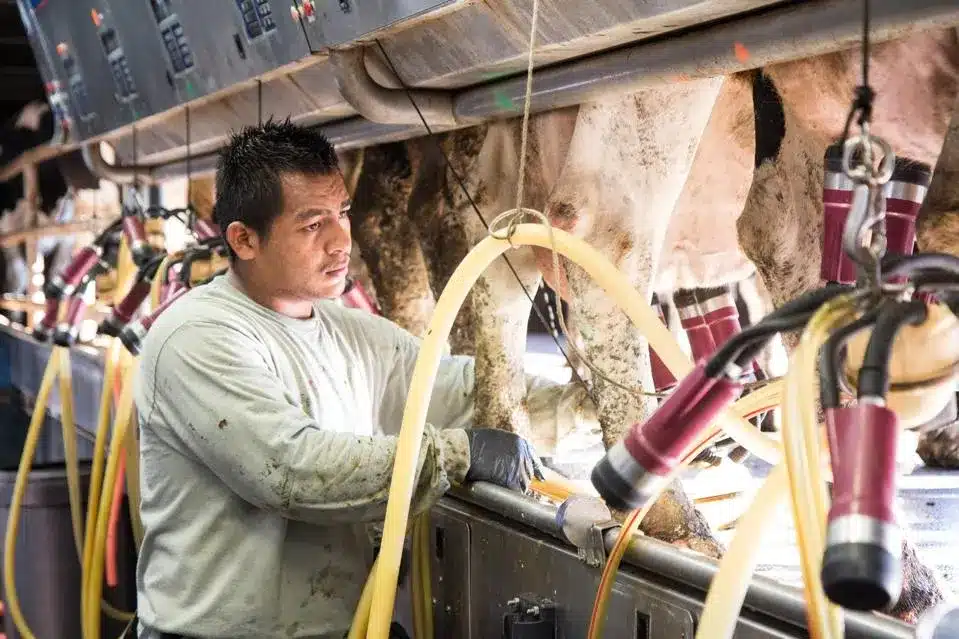
Farm labor faces a devastating blend of forces, according to Brian Reisinger, who grew up on a small Wisconsin dairy farm and later researched the history of farm economics for his book, Land Rich and Cash Poor: My Family’s Hope and the Untold History of the Disappearing American Farmer.
Reisinger says that many young people would love to stay and work on the farm, but the economic outlook is bleak, and they don’t see much of a future in it. “I see kids like … my eldest nephew, who would rather be doing nothing [other] than being on a tractor working with his grandpa. But the problem is that kids in 4H and FFA [Future Farmers of America], they don’t have any guidance counselors telling them to go into farming.”
The fact is there are not enough workers in the rural labor market, as the Baby Boom generation retires and fewer young people come behind to take their place.
“There’s not a lot of retired farmers that are willing to come and help on the farms anymore,” Hinchley says. “We have two older men that help us, but they’re in their 70s; they’re aging out.”
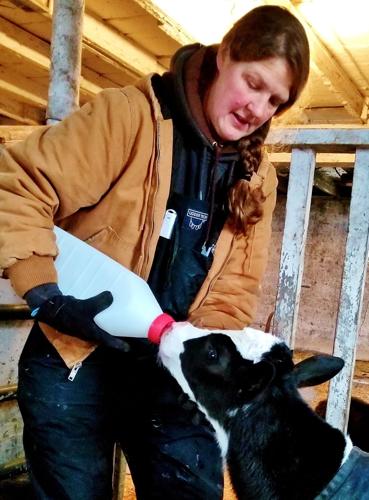
On her family’s farm in Dane County, Wisconsin, they only have one migrant worker to help out as they milk about 240 cows and give farm tours to educate people about the dairy industry. Many other farms rely on migrants to fill roles that used to be filled by high school and college students in the neighborhood, she says.
Idaho has seen some influx in population, but many of these are retirees from the West Coast, according to Naerebout. They’re definitely not seeking out jobs on dairy farms.
Robotic milking machines and other automation technology are appealing to an industry short on help. But, as of now, the technology has its limits, especially for larger operations, says David Anderson, a professor at Texas A&M who helped author the prominent 2015 study on the dairy labor force.
“That technology isn’t perfected yet,” Naerebout says in agreement. He knows of operations, tired of the ongoing maintenance costs and issues with reliability, that have actually fired their robots and replaced them with more reliable humans. “It’s a bit of a mixed bag, where you have some robotics, but you still have a significant reliance on human labor.”
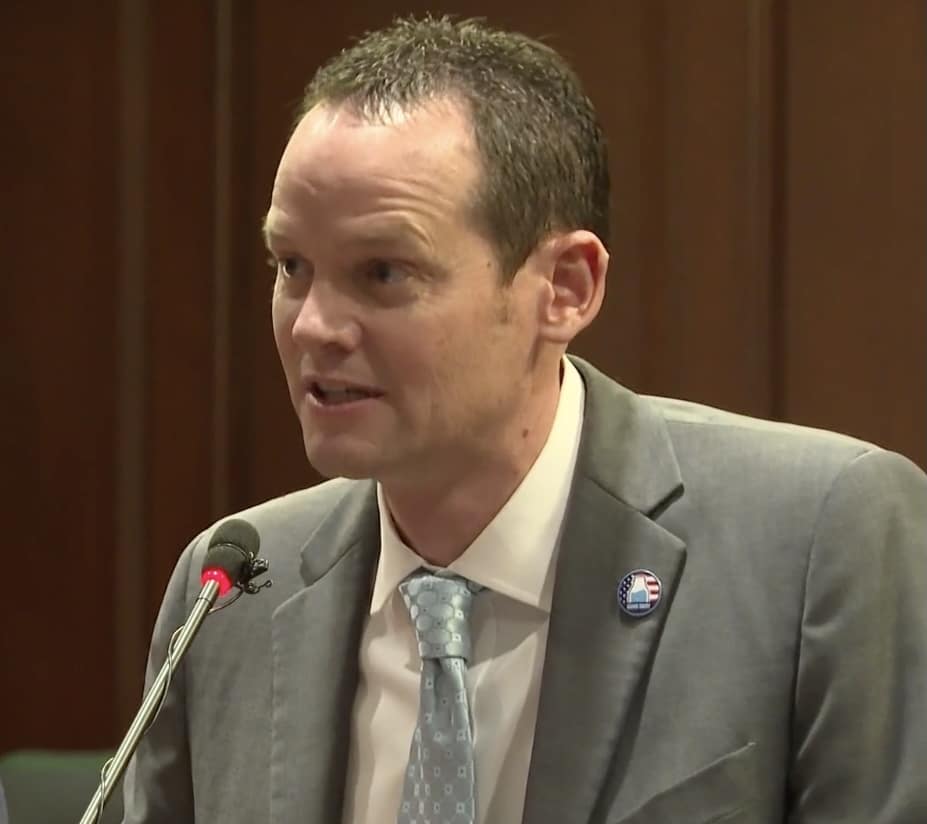
When it comes to hiring authorized migrant labor, the H-2A visa doesn’t serve dairy farmers well. It’s short-term, which is fine for farmers who need people to pick their crops for a few weeks. But dairy farms run full-time, year-round.
Dairies also value experienced workers who stick around and learn the business intimately, which is not the H-2A scenario.
“What we were able to document is that the higher your rate of labor turnover, the worse outcomes you had for overall herd health,” Anderson says. “Your milk production per cow was lower … there’s a value to having employees who have been there a long time.”
Workforce issues are only one headache keeping dairy farmers up at night, including the fact that most farmers are struggling to stay afloat financially.
Milk markets, as they are set up, are notoriously inflexible.
“No farmer controls what they sell their product for,” Naerebout says. “We’re price takers, and so it’s not like we can just say, OK, we’re going to increase our hourly wage by five bucks an hour, and then we’re going to increase what we sell our milk for to compensate ourselves for that increased labor cost. That’s not how our markets work.”
What to do about it
Even though the political pot is red hot and boiling over, the dairy industry has a strong incentive to seek immigration reform as farmers of various political stripes can find agreement on some policies.
The Idaho Dairy Association wants to see expanded legal pathways for existing immigrant workers and their families, and then some kind of multiple-year visa, Naerebout says. They also want to see the conversation go beyond the “Enforcement only” approach that seems to predominate now.
“What we need is stable workers, and what we would like to see is that they have the opportunity to stay for the entire year,” with the option to return after that, says Castaneda at the National Milk Producers Federation. Congress has shown no eagerness for reform for a long time, he says, so modest reforms like this might be the best way to start.
Pennsylvania farmer Rob Barley, whose family runs multiple operations, including a large dairy with more than 1,000 cows, is among those calling for common sense reform. He thinks that viewing the issue as a choice between two extremes—either those who want to keep everyone out or those who want to let everyone in—has caused problems. He wants a strong border, but also a system that allows people to come in who can be a productive part of society.
“There should be a way to do this that is reasonable,” he says.
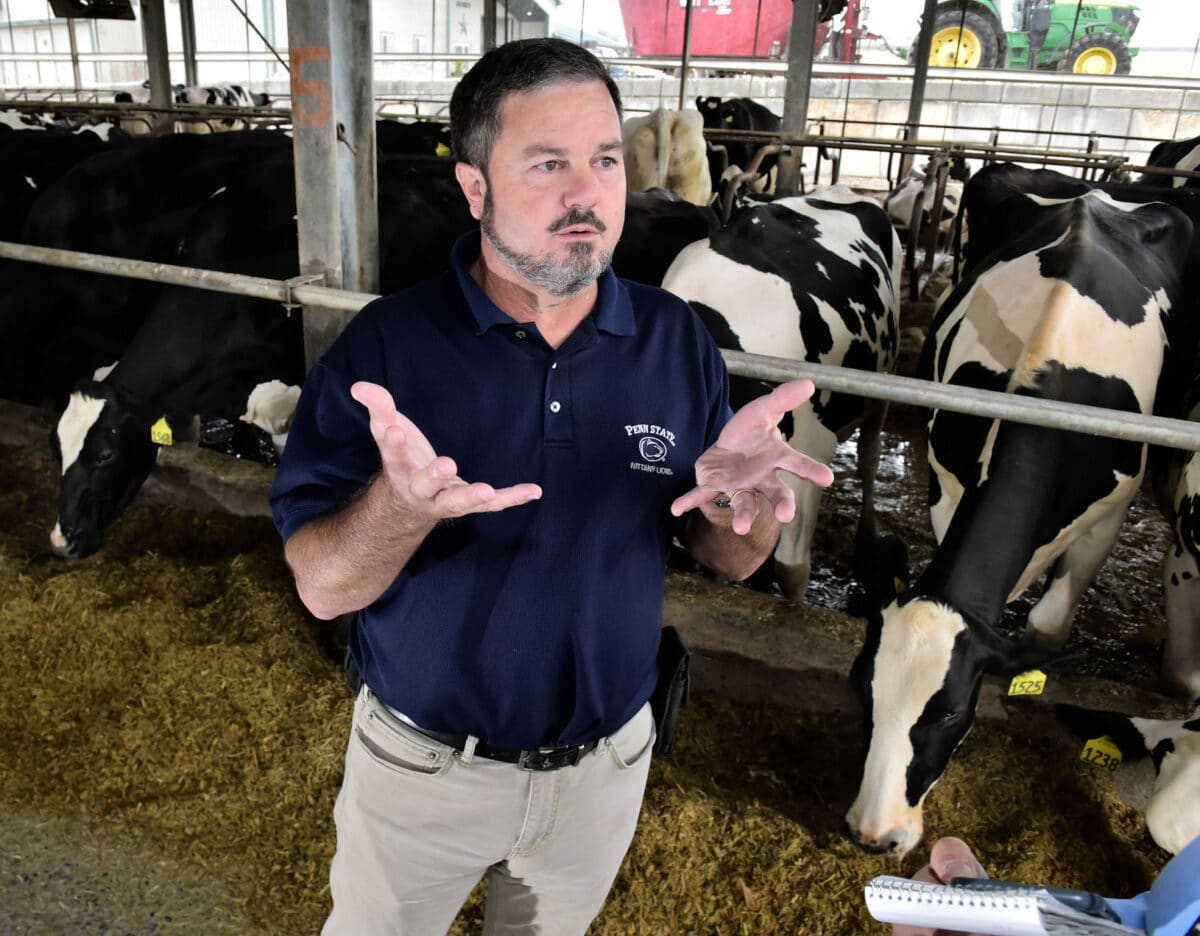
Farmers don’t always see eye to eye politically. Hinchley, who serves as vice president of the Wisconsin Farmers Union, agrees that a long-term visa is needed. She’s also a passionate immigrant advocate who denounces the Trump administration’s approach.
“We need to welcome these people. They’re the ones that are saving our industry,” she says, noting that Wisconsin couldn’t call itself “America’s Dairyland” without immigrant workers. They not only work in milking parlors, but cheese factories: “They’re everywhere,” she says. “They’re driven financially. There’s a motive that they want to better their life.”
She finds it difficult to understand dairy farmers who support Trump’s policies and sympathizes with the fear immigrants feel as they wait to see if their lives will be upended. “I don’t know what we’d do without them, and I think they need to be respected.”
Reisinger blames Congress for failing to do its job, saying it’s not farmers who have put us in this position. “The only reason we’re stuck … is because Congress hasn’t rolled up its sleeves and actually addressed the issue for decades.”
Intermittent efforts to do that haven’t gone far. A 2024 effort by a bipartisan group of senators tanked in spectacular fashion, getting no help from then-candidate Donald Trump, who savaged the bill.
The reality on the ground
A number of sources who spoke for this story chose their words carefully when speaking about immigration policy, rarely mentioning the current president by name. Quite a few others who were reached out to did not respond to requests for comment.
Now that Trump is back in power, and promising to deport both unauthorized and, in some cases, legal immigrants, farmers have been wondering what’s ahead for them. Meanwhile, what the administration frames as a focus on crime is laying the groundwork for larger scale deportation efforts. In April, the Supreme Court sided with Trump in allowing the administration to use the 1798 Alien Enemies Act to continue deporting individuals, as long as detainees are given due process. The law had been invoked only three times in U.S. history, during wartime, and is now at the center of a April 20 emergency injunction by the Supreme Court to temporarily block the deportation of 137 migrants the administration claims are part of the Venezuelan gang Tren de Aragua.
Despite the legal firestorm currently happening over immigration, farmers and industry insiders described a mostly quiet dairy farm scene on the enforcement front.
Barley, who also serves as the chairman of the Pennsylvania Milk Board, says he had not heard of enforcement actions taking place, although there is talk going around and a sense of heightened concern among employees.
“There’s definitely an uneasiness and anxiousness amongst the workforce on what might happen in the future,” Naerebout says.
He tells Barn Raiser in an email that Idaho agriculture has not seen any worksite raids under the new administration, although there has been some targeted enforcement directed at criminals. People picked up in those operations who don’t have a criminal record have then been released, he says.
“There’s been quiet conversations on the side between industry people and the administration, and [telling] them, ‘Look, you can’t. If you do this enforcement widespread and start picking up half the workforce, it’s going to put people out of business and really hurt the industry,’ ” Stup says.
Rumors have been flying on social media. Stup says one of these was sparked by a state vehicle spotted on a farm that had nothing to do with ICE. But, as he has talked with dairy farmers around New York and colleagues in other states, a picture has emerged of ICE making some farm visits. “In those farm visits, they have been quite consistent, though, that they are looking for individuals with some kind of a criminal background,” he says.
That doesn’t mean the situation will stay that way. “It could be a new memo tomorrow, and that could all change on a dime,” Stup says.
It’s commonly pointed out that ICE doesn’t have the staffing, as of now, to actually carry out mass deportations as described by Trump during his campaign. Still, targeted enforcement could cause a lot of pain. If the administration were to go after blue states like New York, and concentrate in a dairy-heavy county, that could result in disastrous consequences locally, Stup says, with cows not being fed or people trying to sell off herds. The more remote and rural the area, the worse this impact could be, with farmers not having many neighbors to turn to for emergency help to get them through.
Among the traits of the Trump administration so far, predictability isn’t one. But even if he follows the trend of the past 30 years and lets things go along largely as usual, farmers will continue to be caught in the middle on immigration for some time to come.
The post Trump Deportations Have Dairy Farmers on Edge appeared first on Barn Raiser.
A beautiful disaster: profiles of Washington Island residents impacted by Winter Storm Frannie
Los granjeros de Wisconsin estan preocupados.
MIWISCONSIN Media & Community Inc. somos el primer medio hispano nonprofit en el Midwest.
En medio de cambios inesperados pero anunciados durante la campaña, los granjeros de Wisconsin están mostrando su preocupación según lo dijo durante la entrevista, Frankie Rodríguez, dueño y presidente de una de la agencias que buscan trabajadores para las granjas y fábricas, AgroStaff y Labor One Staffing.
Desde el 2023 se ha visto un notable aumento en la llegada de trabajadores inmigrantes desde Nicaragua, Venezuela, Honduras y México, agregó Rodriguez. “La mano de obra latina ha sido esencial para sostener el crecimiento del sector agrícola en el estado, que es el segundo mayor productor de leche en Estados Unidos.”
Según las cifras expuestas durante varias entrevistas, UW-Madison Extensión estima que el 70% de la mano de obra es inmigrante.
Uno de los principales retos para los trabajadores agrícolas es el acceso a vivienda. “Hay poca oferta y muchos requisitos como verificación de crédito o número de seguro social, que la mayoría no tienen”, enfatizó Rodríguez. Además, la imposibilidad de obtener licencias de conducir sigue siendo una queja común entre los trabajadores y los rancheros, que temen por la seguridad de sus empleados.
Durante la entrevistas Frankie dió varios consejos para los trabajadores de las granjas.
Mire la entrevista completa >>
The post Los granjeros de Wisconsin estan preocupados. appeared first on MIWISCONSIN: Conectando los latinos en USA en español | News in spanish.
Will lake trout be on the menu in the future? Commercial harvest of the fish awaits Wisconsin Natural Resources Board response
No questions asked, no judgment given; local food pantry workers rely on network of funding and donations to feed people
In Red States, Rural Voters Are Leading the Resistance to School Vouchers
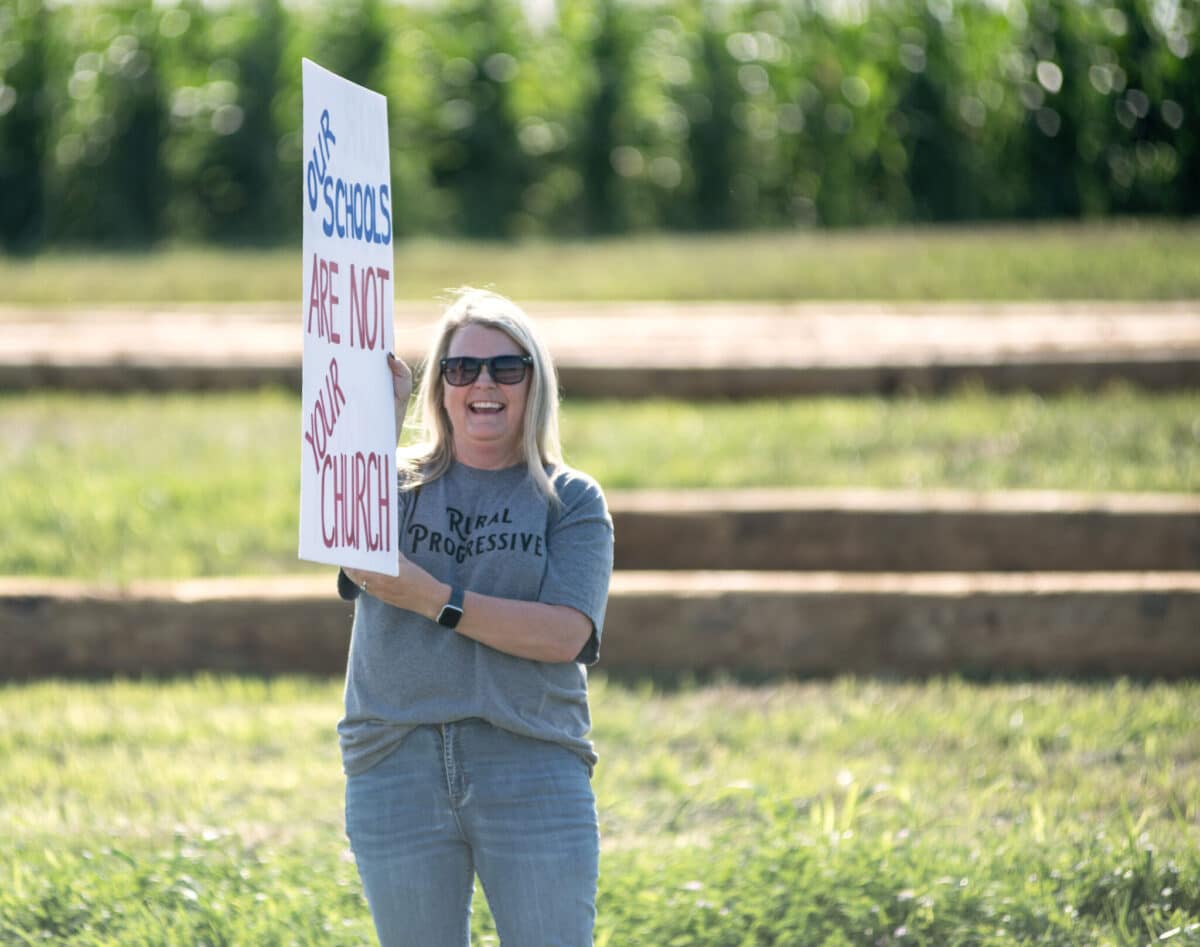 Kristina Reser-Jaynes can still recall a time when she’d never heard of school vouchers. Then, a few years ago, the Kickapoo school district in Southwestern Wisconsin that her daughters attend confronted a challenge all too common in small rural communities these days: a declining number of kids.
Kristina Reser-Jaynes can still recall a time when she’d never heard of school vouchers. Then, a few years ago, the Kickapoo school district in Southwestern Wisconsin that her daughters attend confronted a challenge all too common in small rural communities these days: a declining number of kids.
“I started looking into the causes of our declining enrollment and just trying to get better informed,” says Resar-Jaynes, 57, who grew up in this scenic corner of Wisconsin. “And this talk about vouchers kept coming up.”
Wisconsin is home to the oldest private school voucher program in the country—an experiment in which the state, starting in 1990, paid the private school tuition for 1,000 low-income children in Milwaukee. Today, the state spends more than $700 million toward the cost of private school education across the state, and communities like Resar-Jaynes’s are beginning to feel the effect.
During the 2023-24 school year, 11 students in the Kickapoo school district received a voucher to attend a religious school at a cost of $113,811 to local taxpayers, an increase of more than 400% from the previous year. Those numbers might not seem eye-popping, but in a pint-sized district with limited resources, the loss of a handful of students translates into program cuts for the remaining student body. And with vouchers in the state set to expand again next year, Resar-Jaynes says she fears for the viability of small rural districts like hers.
“In a little community like ours, the school is one of the few places we have left where we come together as a community,” says Resar-Jaynes. “We set aside our differences and we cheer on all our children in sports and in the arts. How can we allow that to be put in danger of being lost?”
Growing pains
That’s a question a growing number of rural communities face as private school voucher programs expand across the country. Sixteen states, beginning with Arizona in 2022, have now adopted so-called universal vouchers that allow virtually all families, no matter how wealthy, to use public tax dollars to pay for alternatives to public schools. In February, Tennessee and Idaho became the latest to join the voucher club. Texas, where Republican Governor Greg Abbott has made enacting vouchers his signature political cause, is the likely next member.
The programs go by different names and embody different approaches. Tax credit scholarships reward wealthy donors and corporations for contributing to private school “scholarship” groups. Traditional voucher programs allow parents to spend public funds on private schooling. Education savings accounts, meanwhile, function more like an education debit card loaded with tax dollars, which parents can use on a variety of education-related expenses. Whatever the specifics of the program, the goal is the same: to move students away from public schools and into private religious schools and to subsidize parents whose kids already attend them.
The project comes with the backing of some of the richest people in the country, including former Secretary of Education Betsy DeVos and hedge fund billionaire Jeff Yass, who together have devoted tens of millions to the cause of voucher expansion. It’s also a top priority of Trump officials, including Secretary of Defense Pete Hegseth, who has urged parents to pull their children from public schools in favor of religious homeschooling or explicitly Christian education.
The swift expansion of vouchers through red states reflects a major shift in direction by the school choice movement, which for decades has sought to build bipartisan support for the cause using the language of civil rights. Sensing an opportunity during the Covid-19 pandemic, voucher proponents embraced a sharply partisan strategy. In the name of “parents rights,” and with the aid of well-funded conservative groups including Moms for Liberty and Parents Defending Education, they leaned into explosive school culture war issues. Support for vouchers was now redefined as a “litmus test” for Republicans. Their first targets: deep red states where rural Republicans have long cast deciding “no” votes against voucher expansion.
That strategic shift has proven wildly successful. In one state after another, anti-voucher Republicans, almost all rural, have been defeated in GOP primary elections, swept out of office by a tidal wave of money from deep-pocketed pro-voucher groups. But knocking out rural legislators in states like Iowa, Texas and Wyoming, is not the same as eliminating long-standing rural opposition to vouchers.
In 2024, rural voters in three states—Nebraska, Kentucky and Colorado—sent a loud reminder that when it comes to spending tax dollars on private religious schools, they remain deeply opposed, despite Donald Trump’s embrace of the issue. In Kentucky, for example, opponents of a proposed constitutional amendment that would have allowed the state to fund “non-public” school options, warned rural Kentuckians that vouchers could force public schools in rural communities to close. One hard-hitting ad reminded voters of the lifesaving role played by their schools in the aftermath of the floods that ravaged the state in 2022. “Public schools saved us. It’s where everyone could find food and shelter.”
Rural voters responded, as voters in the state rejected the amendment by more than 60%.
Such lopsided results reveal a major weakness in the voucher movement’s strategy of targeting rural legislators. Knocking out GOP holdouts is one thing; convincing rural voters to walk away from their local public schools, even in our era of hyper-partisanship, is something altogether different.
Fighting rural decline
Lance Groves, 34, is a fifth-generation Texan on his father’s side. He grew up in the west Central part of the state near Possum Kingdom Lake, and today runs the family’s mechanical contracting business with his brother. Groves is also a passionate advocate for economic redevelopment in a part of the state that has long suffered from population decline and “brain drain,” as young people leave these small rural communities for more opportunities elsewhere. Now, those efforts are imperiled.
“The consequences of a voucher system in Texas would just completely wreck everything we’re trying to accomplish out here,” says Groves, who, with his brother Corey, started a documentary series called Rural Route Revival that chronicles the duo’s work to bring struggling Texas towns back to life.
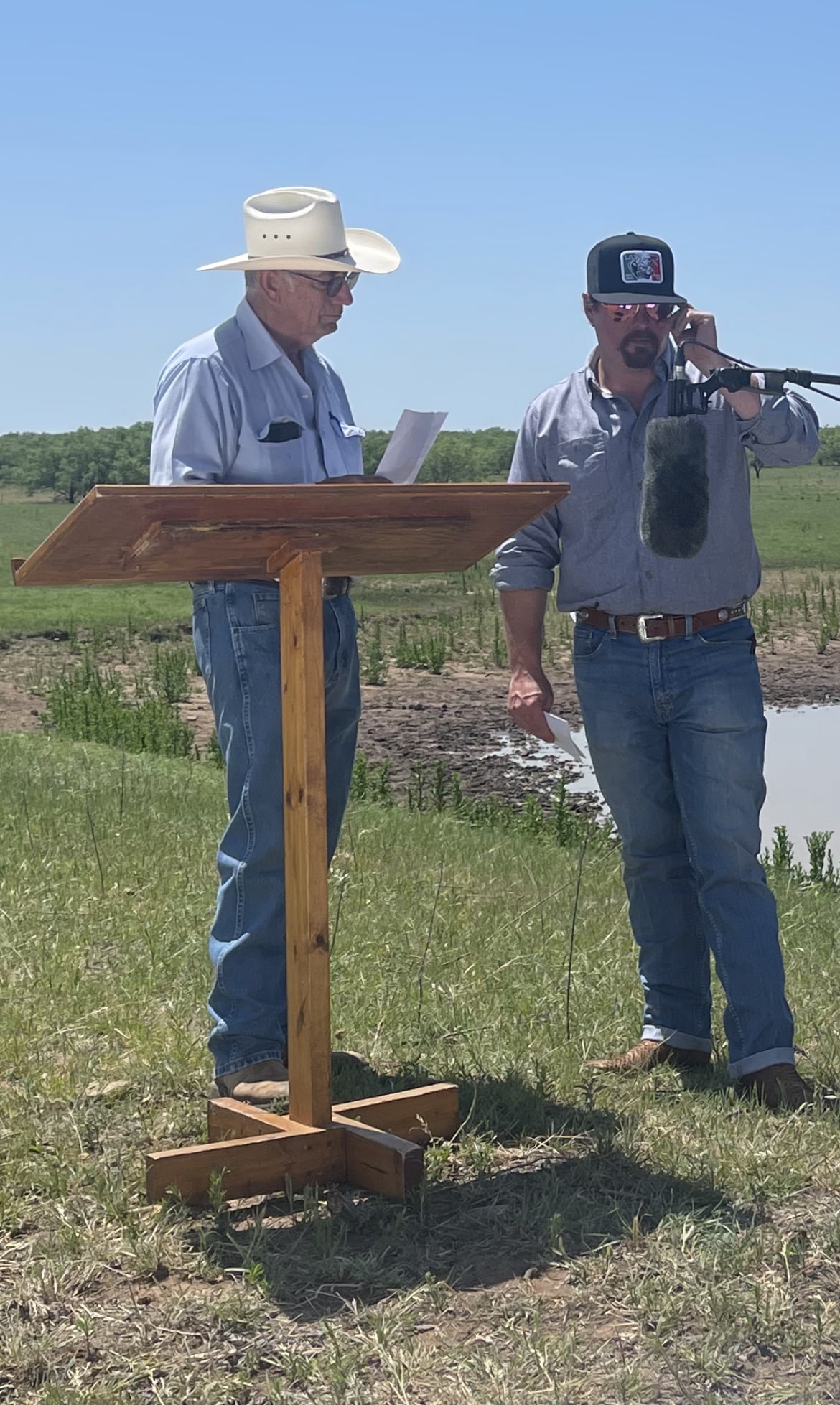
Groves’s concerns extend beyond the state’s proposal to provide families—no matter their income—with $10,000 in order to pay for private religious education. His former state representative, Glenn Rogers, a large animal veterinarian who initially ran for office in 2019 out of concern that rural Texas was underrepresented in the state legislature, was one of nine Republicans to get primaried last year for opposing school vouchers.
Rogers ended up losing his seat in a rematch with Mike Olcott in a wildly expensive campaign that often had nothing to do with vouchers but instead focused on Rogers’s alleged failure to support Gov. Abbott’s border policy. “The other thing he said about me was that I consistently voted with Democrats,” recalls Rogers. “That was a 100 percent lie.”
Two years previously Rogers narrowly defeated Olcott, thanks in part to support from Gov. Abbott. This time Rogers opposition to Abbott’s education savings account plan made him a target. Olcott—who firmly supports Abbott’s so-called parental bill of rights amendment to the Texas Constitution—racked up endorsements not only from the governor but from Donald Trump, Sen. Ted Cruz and Texas Attorney General Ken Paxton.
As a result, this part of rural Texas no longer has an advocate for the public schools that serve as its anchor, says Groves.
“We lost a solid guy, a great rancher from a great family,” says Groves. “And for what?”
On the far western edge of the state, in the Panhandle community of Spearman, newspaper editor Suzanne Bellsnyder has been making the case to anyone who will listen that vouchers represent the latest round of disinvestment from rural Texas that has now been playing out for decades. In the competition for scarce resources, communities like Spearman (population 3,000) will inevitably come up short against their more powerful metro counterparts.
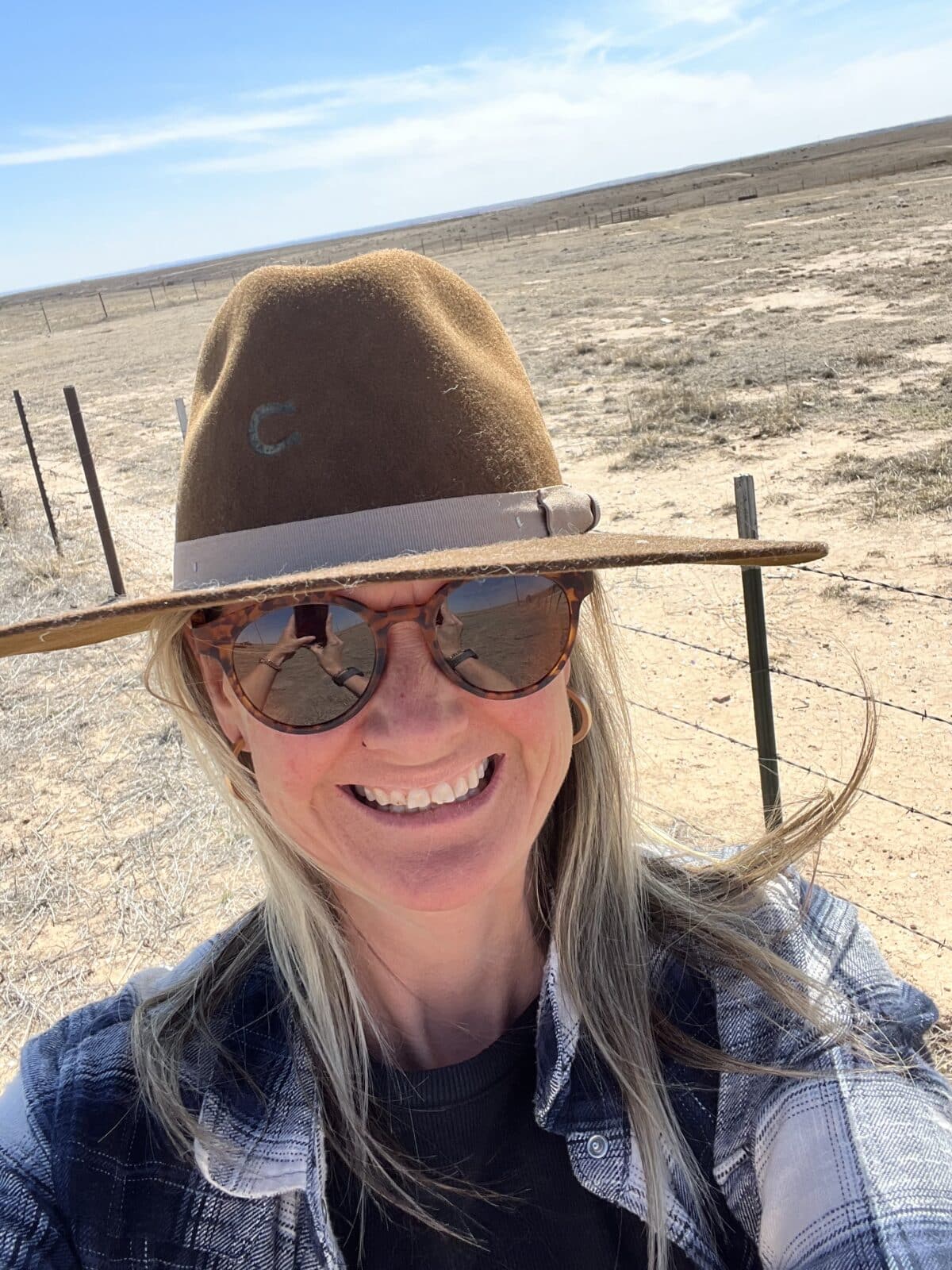
“The state of Texas already cannot fund public schools appropriately. Now we’re going to try to find a completely second system of public schools that only certain students are going to have access to,” says Bellsnyder. “You can see what happens next. There are not going to be enough resources to go around and our communities are going to be defunded.”
The Spearman schools are currently considering moving to a four-day school week, in part to save money, a shift that many other school districts in the Panhandle have already made. Bellsnyder fears that the loss of further state funds to vouchers will mean program cuts, staff layoffs and, ultimately, the closure of schools.
Recent evidence from other states that have enacted universal school vouchers shows that she is right to worry. In Iowa and West Virginia expansive new voucher programs are exacerbating the fragile math of funding rural education.
In West Virginia, the education savings account program known as the Hope Scholarship provides $4,900 per student to be used for private schooling, homeschooling, microschools and a broad range of education-related expenses. But West Virginia’s shrinking population also means declining student enrollment. Now a policy that essentially incentivizes students to leave public schools is exacerbating the numbers problem, resulting in multiple rounds of school closures.
“Most towns die after a closure of a high school,” said Charles Goff, mayor of Hundred, a town of 242 in Wetzel County, West Virginia, in an emotional speech to state school board members last year. “[Towns] lose incorporated status, lose elected officials in town, and it leads to fire departments closing and town charters being revoked. That includes losing EMS. We are an hour away from the hospital, and fire and EMS are crucial in our community.”
It’s not hyperbole. In their massive, first-of-its-kind survey of rural political attitudes, scholars Nicholas Jacobs and Daniel Shea found that rural schools play an outsized role in helping define the sense of place that is at the heart of contemporary rural identity. And decaying rural schools, trapped in the cycle of rising costs and diminishing revenues, can create a community death spiral. “A town’s demise can come in fits and starts over a long period,” they write, “but when the local school is boarded up, the death bells chime with a deafening resonance.”
Iowa Citizens for Community Improvement is A 50-year-old advocacy organization that rose to prominence during the farm crisis that rocked the state in the 1990s. These days, the group is sounding the alarm that threats to rural public schools are a threat to rural communities.
“Family farms and strong public schools were once the life blood of our rural communities in Iowa,” says Tim Glaza, special projects director for the group. But the state’s political leaders no longer seem to share that view.
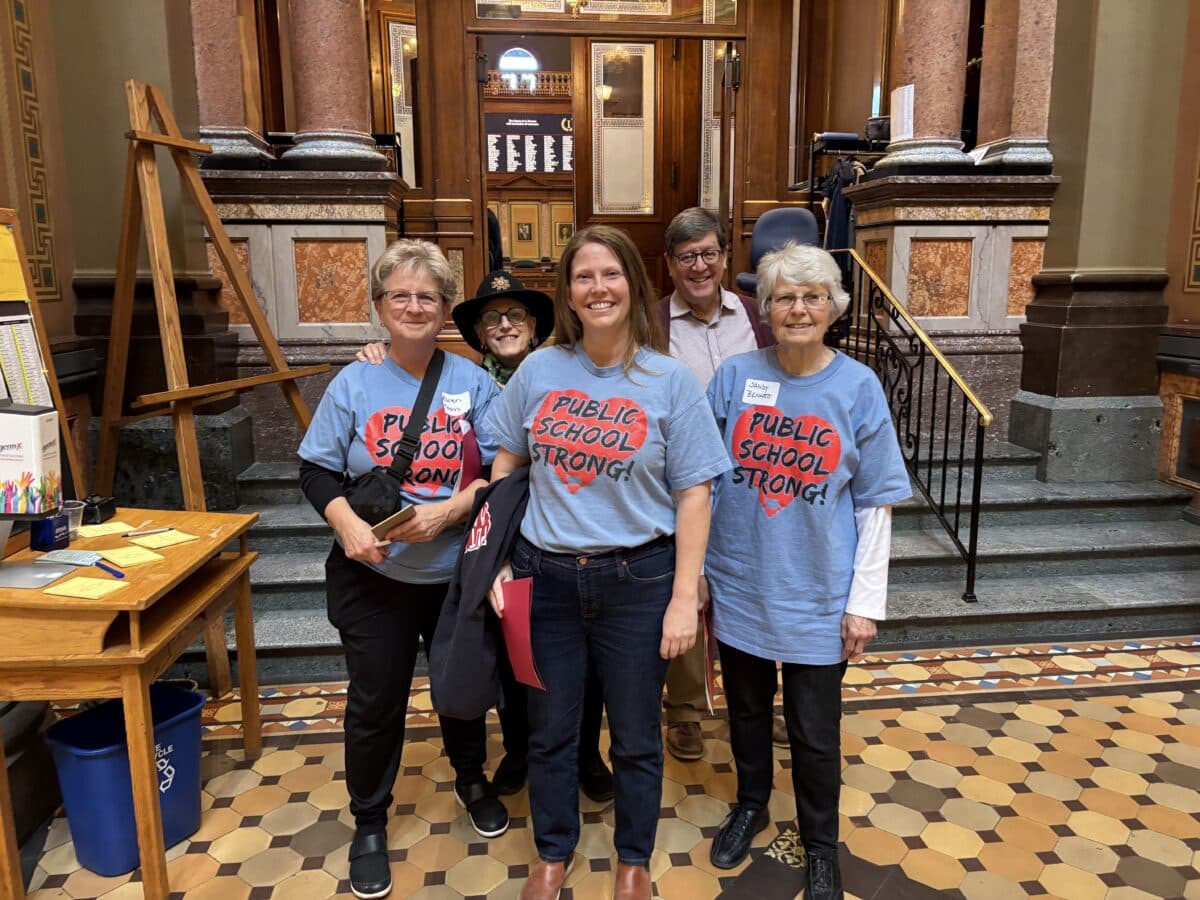
Nearly 30,000 students in Iowa now receive state funding to attend private schools, thanks to a two-year old state voucher program. According to state data, 16 public schools, many of them rural, have closed since the voucher program began, while 36 new private schools have opened. While the overwhelming majority of students in the program never attended public school, even the loss of a few students can quickly translate into agonizing budget choices for shrinking rural districts, especially those for whom raising property taxes is a political non-starter.
The full impact of Iowa’s program, meanwhile, has yet to be felt. In its first two years, participation was limited by income. This year, those limits come off, meaning that the state will soon pick up the private school tuition bill for even the wealthiest families.
“The refusal to adequately fund schools combined with a voucher program that funnels public money to private schools is going to mean more school consolidation and closures, and more flight from our small towns,” says Glaza.
Backlash brewing?
The first two months of the second Trump administration has considerably darkened the prognosis for the nation’s rural schools. In addition to the state-run universal voucher programs reshaping education in red states, Trump and his allies are pushing for a federal voucher plan. The Educational Choice for Children Act (H.R. 833), introduced into Congress in January, would incentivize wealthy donors and corporations to donate to so-called scholarship-granting organizations in exchange for unprecedented tax breaks. Education secretary Linda McMahon has indicated that expanding private school choice is among her top priorities.
The federal approach would move vouchers into blue states as well as circumventing opposition among Trump’s own base. The lead sponsor of the legislation that would create a federal voucher program, for example, represents rural Nebraska, where his own constituents voted overwhelmingly last November to repeal a similar program. As one voucher proponent put it, “Rural voters have ‘emotional’ connections to their local public schools that are difficult to dislodge.”
Trump’s ongoing efforts to dismantle the Department of Education will also fall heavily on rural schools and the students who attend them.
Rural schools are highly dependent on Title 1, the 50-year-old program created to ease the nation’s vast school funding disparities. As education writer and retired rural education Peter Greene observed, rural schools are likely to take a double hit if the administration repackages Title 1 funds as block grants, which states then convert into voucher funds.
“Those districts will see a loss of funding and will have limited ability to replace those funds by raising local taxes. At the same time, they are not attractive markets for any high-quality education-flavored businesses,” writes Greene. “Those communities are more likely to end up with a ‘school’ aisle in their local Dollar General.”
The slash-and-burn-style budget cutting that is a hallmark of our DOGE era is also hitting rural schools hard. The Agriculture Department recently axed two programs that gave schools and food banks money to buy food from local farms and ranchers, halting more than $1 billion in federal spending. Even Trump’s effort to unwind his predecessor’s commitment to green energy could take a toll on schools.
In Missouri, where one out of three school districts have adapted a four-day week, largely in response to economic pressures, the only rural districts that still provide five days of school rely on taxes paid by wind farms. “When Trump and his Republican allies take aim at green energy, this is what they’re talking about,” says Jessica Piper, executive director of Blue Missouri and the author of the newsletter, View from Rural Missouri.
But if the emerging policy landscape looks bleak for rural education, funding cuts and school closures are also deeply unpopular among rural voters, including Trump’s most ardent supporters. Liv Cook spent years as a special education teacher in rural southeastern Tennessee. These days she works as public education campaign organizer for SOCM (pronounced “sock-em”), the Statewide Organizing for Community eMpowerment, statewide membership group founded in 1972 to organize grassroots resistance to mining companies and in the coalfield communities of the Cumberland Mountains. The group’s organizing work has since expanded statewide, including their #PublicSchoolStrongTN campaign to counter attacks on public education.
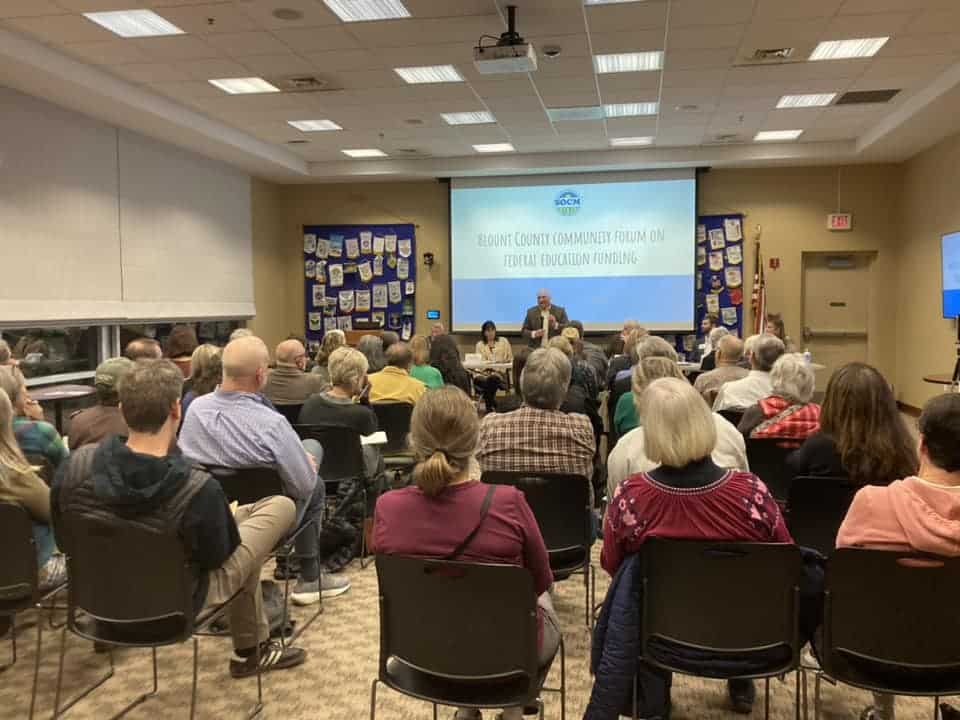
When the Tennessee Republican-controlled legislature adopted a $447 million universal voucher program in January, it was over the opposition of many rural communities, including southeastern Tennessee, says Cook. “Vouchers are now seen as a conservative value but there’s a big disconnect with these rural folks. They love their home schools and their teachers.”
Last year, when Tennessee Republicans floated the idea of refusing more than $1 billion in federal education funding over objections to expanded student civil rights protections, Cook spent months going door to door talking to voters about what such cuts would mean for local schools.
“When people learned that their elected officials were talking about less money for local schools they were shocked,” recalls Cook. “Everyone could list off the things that their local schools and teachers desperately needed, and finding out that the plan is actually to privatize and make a few people even more money, was just infuriating to them.”
SOCM was part of a sprawling coalition that fended off vouchers in 2024; they weren’t so lucky this time around. Still, Cook remains convinced that the unique tie between rural voters and their public schools offers a vehicle for not just resisting bad policies, but demanding approaches that strengthen rural communities.
“We ask our neighbors what they want their schools and their kids and the answer is ‘everything,’ ” says Cook. “That’s a powerful place to start.”
The post In Red States, Rural Voters Are Leading the Resistance to School Vouchers appeared first on Barn Raiser.